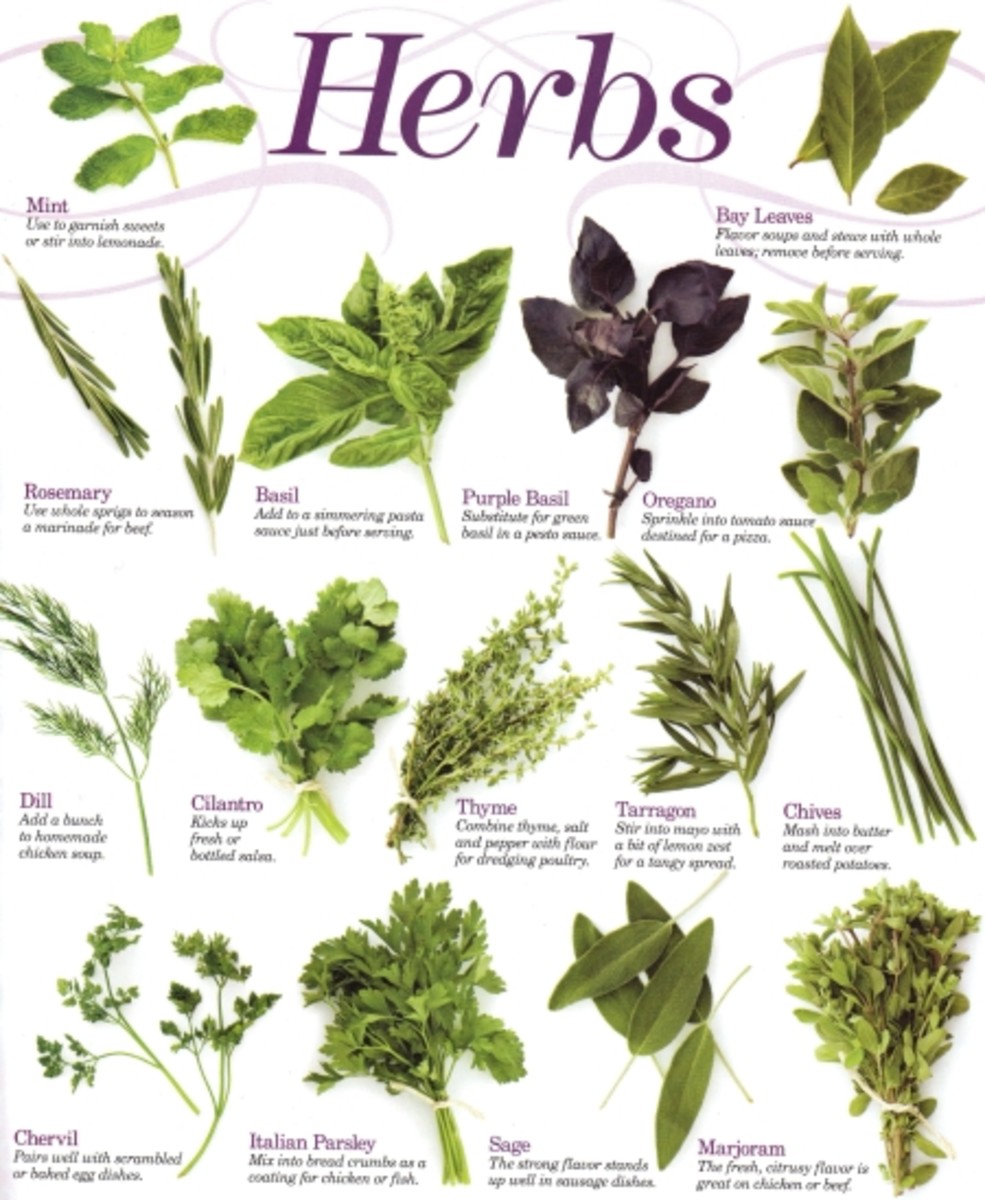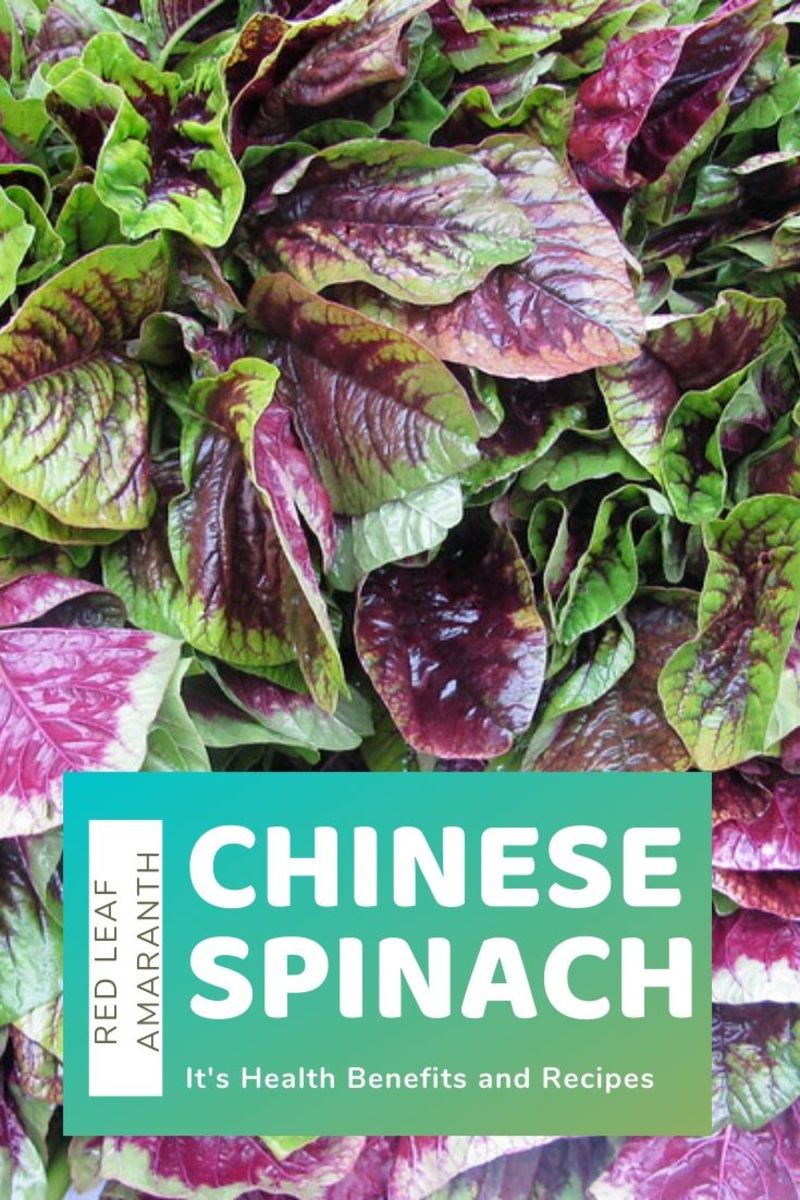Lemon Power: Things to do with Lemons
Lovely Lemons
The versatile lemon is one of nature's most useful fruits. Not only do they have medicinal (some say magical) properties, they are nice to look at, beautifully fresh smelling, decorative in slices, healthy and a natural bleach. Among other things lemons can cure hiccups, aid digestion, fade freckles, perk up drab hair and add zest and flavour to a myriad of recipes.
The humble lemon contains thiamin, pantothenic acid, riboflavin, magnesium and iron - it's also a good source of fibre, vitamins C and B6, calcium, potassium and copper and is believed to have many medicinal healing powers.
Lemons have a mysterious origin, with no-one being entirely sure where they originated and at what time, though it believed they may have been first grown in China and India. They appeared in ancient Rome but it wasn't until the 15th century that they were popularly grown in Europe, eventually spreading far and wide.
Known botanically as belonging to the Rutaceae (citrus) family, lemons really do have a multitude of uses, just some of which are listed below. If you have a lemon tree, you might be wondering what to do with all those lovely lemons and if you don't have one, perhaps you should think about cultivating one (they can be grown in pots too).
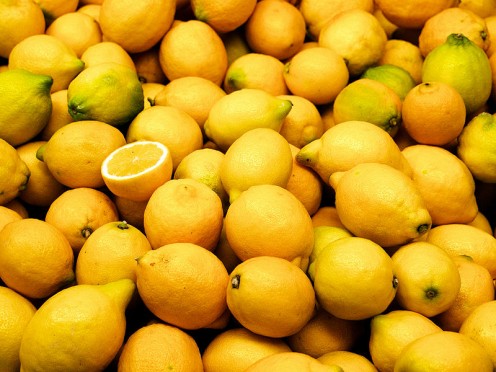
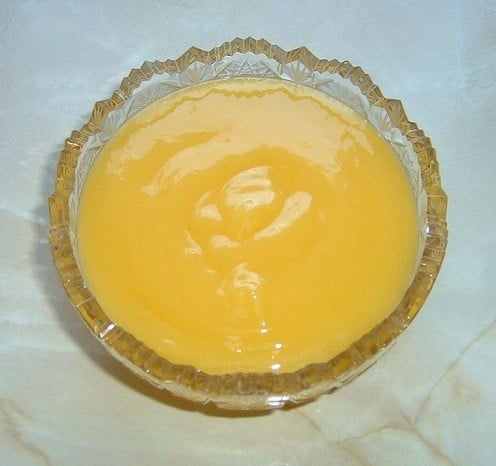
Lemon Butter
Traditional lemon butter is an old favourite and quite straightforward to make. Quick and easy.
Ingredients
2 lemons, with juice and rind included (approximately two thirds of a cup of juice)
1 cup of castor sugar
125 grams of butter
4 lightly beaten eggs
Method
Chop butter and melt in microwave with the sugar for 2 minutes. Whisk eggs, lemon rind and juice together and whisk again into the hot butter and sugar combo until thoroughly mixed (being quick about it). Microwave on high for four minutes stopping the process at one minute intervals to whisk the mixture. Pour into glass jar and seal. This mixture can be used as a spread on scones, bread etc and is also good as a filler for little shortcrust pastry cases.
Lemon Cordial
Great for the summer months or anytime really, this simple recipe is very easy to make and tastes terrific. Very refreshing:
Ingredients
grated rind and juice of six lemons
2 kilograms of sugar
1 tablespoon of tartaric acid
1 tablespoon of epsom salts
2 tablespoons of citric acid
6 cups of boiling water
Method
Mix all of the dry ingredients with the lemon juice in a large bowl, Add boiiing water, mix and dissolve the sugar and acids and pour into bottles. Incredibly simple. Remember this is a cordial and thus a concentrate, so you need to add water to the glass when you drink it. I once gave a bottle of this delicious cordial to a friend who complained me later that she had tried it but found it was "far too sweet". She hadn't realised it was a cordial! Duh.
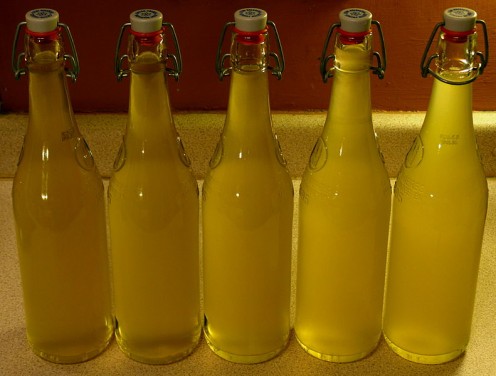
Lemon Marmalade
For a breakfast alternative to orange marmalade try the lemon variety instead.
Ingredients
6 lemons
7 cups of water
6 cups of sugar
Method
Wash and slice up the lemons, place in a large saucepan with the boiling water and let the whole lot stand overnight. follow by cooking gently until the rinds are softened - around 30 to 45 minutes. Add the sugar and stir until dissolved, then rapidly boil for another 30 to 45 minutes until the fruit jells nicely.
NB. During the boiling process the pips usually rise to the top and can be removed easily with a spoon.
- Tips to Lighten Hair
Many people have blonde hair when they are children but as they grow older, an increase in melanin - the protective, natural chemical that causes skin and hair colour - begins to kick in and as a result the hair darkens...
Lemon Hair Rinse
Although you can't eat this one (well you probably could but it's not advised), it makes for a good mild bleaching rinse for fair hair and the bleaching effect will be intensified if you dry your hair in the sun.
To apply just use the squeezed juice from a lemon in your final rinsing water after shampooing, though you may want to pour thw juice through a sieve first so you don't end up with lumps of pulp in your hair.
Lemons as a Cure for Hiccups
Incredible as it may seem, one tablespoon of lemon juice will stop hiccups in their tracks - every time. The proper medical term for hiccups is synchronous diaphragmic flutter and they can occur when we overeat or get gas, eat too quickly, swallow too much air or drink too much alcohol.
Just why lemon juice should work is unclear but possibly it has something to do with the acidity levels of the fruit. Anyhow it works. Trust me!
Lemon Gargle
For a sore throat, try a simple lemon and water gargle. The acidity of the lemon juice will help shrink swollen tissue and provide an unfriendly environment for bacteria and you'll be picking up a bit of good 'ol vitamin C too.
Just mix a teaspoon of lemon juice with a small glass of water and swish away. For an effective gargle you'll need to tip your head back and hold the juice right at the back of your throat, making those gutteral gargle noises as you do it.
Lemons for Fading Freckles and Sunspots
Can lemons be used for fading freckles and sunspots? The answer is yes, they can but it takes time and you probably wont see noticeable results for around six weeks. I speak from personal experience here - I had a couple of annoying dark freckles on my forehead to which I applied a few drops of fresh lemon juice every night and morning. Now, two months later while the spots haven't disappeared completely, they are so faint as to be barely perceptible.
One important thing to bear in mind when using lemon juice on your skin is to apply sunscreen over the top (after it has dried). The acidity of the lemon juice may make your skin more susceptible to sun damage and besides, wasn't it sunlight that created the freckle problem in the first place..?

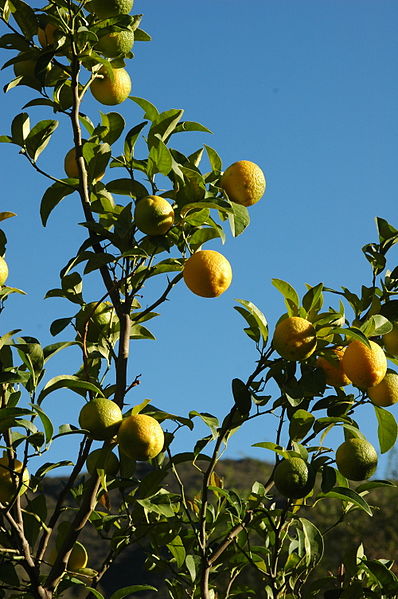
Growing a Lemon Tree
Not only are lemon trees a beautiful addition to the garden but of course they provide a ready-made supply of organic, extremely useful fruit. Once a healthy tree is established not only will you have plenty of lemons for yourself but the almost guaranteed abundance of fruit will mean you'll be able to give bags of them away.
Lemon trees like a sunny position in the garden and benefit from a good organic mulch that will break sown in the soil. Be careful not to smother the trunk of the tree with soil or mulch as this may cause collar rot - let some air circulate around the stem. Provide them with lots of water in Spring and Summer for juicy lemons but we wary of oversaturating the soil - lemon trees do not like to be water-logged.
Use a citrus fertiliser in Spring and manure every six months. To encourage new growth prune the tree every season, cutting back to around half of the current season's growth and try not to let it grow too tall or you wont be able to reach the lemons!
Before Planting
- dig a hole twice the width of the pot and moisten the hole
- soak the roots in a bucket of water before planting
- position the tree so it's level with the ground and fill in the hole with soil, patting down so it is firm
- water well
Dwarf varieties of lemon trees can also be grown in a pot if space is a premium. Use slow release fertiliser for these. Use mulch in the pot and ensure the tree does not dry out in Spring and summer.




